Greater than 2 minutes, my friend!
Use headings to stay ahead of translators The Importance of Headings for SEO
Use headings to stay ahead of translators
If you build new relationships with translation customers (both translation agencies and businesses) online, you may want to know how header tags (a SEO element) can help you attract new clients.
Header tags (also referred to as h1s, h2s…) help to give readers an at-a-glance idea of what your website content is about. Similarly, they help search engines, such as Google or Yahoo, to understand better the content of your website.
In the picture above, we can see a concise title (h1) for this post: “Becoming a Legal Translator”.
The Importance of Headings for SEO
Search engines use header tags as one of the elements to decide whether the content of a site is relevant for the keywords that internet users type into search boxes:
If you type “how to become a legal translator” into Google, our post appears in the top positions. Google understands that our post named “Becoming a Legal Translator” is relevant for this search.
Highlighted in yellow, we can see the meta title of the post. Meta titles and headings are different things, but in this case they read the same. To find out more about meta titles and meta descriptions, you can read my previous post.
When a search engine crawls a page, it looks for the same keywords in headings and in page copy. If keywords in both elements match, this is an indicator that the copy may be relevant.
Highlighted in yellow, we can see that the keyword “legal translator” appears four times in the content of our post.
The most important heading on a page will be h1 and the least important will be h6. Each heading represents an opportunity to tell search engines what the content of our page is about.
In the example below, “professionalising legal translation” is the h2, which is closely related to the h1 “Becoming a Legal Translator”.
The goal, for both Google and you as a translator, is that internet users arrive at your page because you offer what they are looking for. If you provide a good user experience to them, Google will notice that, taking into account, for example, low bounce rate, and you site will serve for future related searches.
How to make headings
If you use WordPress or Wix, h1 headings are automatically created using the title of the page, that is, the first line that appears on your page. This means that, for example, if the first line on a page is “Guest post kindly written for…”, this will be the h1.
In order to make sure that your heading is relevant, you can set it manually in the text editor of WordPress or Wix: just select a section of text on a page and then select h1/ heading 1, h2/ heading 2…
My Tips for Header Tags
Headings are only one of the many elements of SEO, which means your site won’t rank on the top 3 search results by just working on headings. However, it is a fundamental element that you can set on each page of your website to increase your visibility. Some good practices:
-
Select only one h1 tag per page
-
Additional headings will be in h2, h3, h4 …
-
Your headings should contain the keyword (phrase) for the page
-
Make sure headings accurately describe the content of your page
-
Use synonyms of your keyword to avoid spam penalties
I hope that you have found this post useful. If you have any questions, feel free to drop me a line!



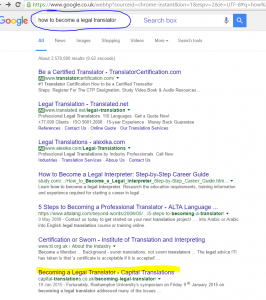
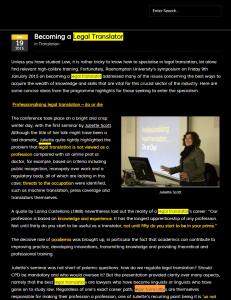
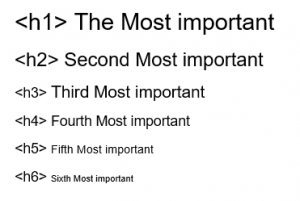
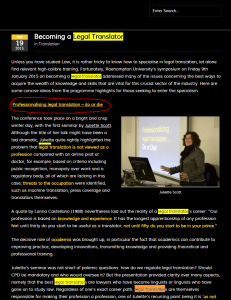
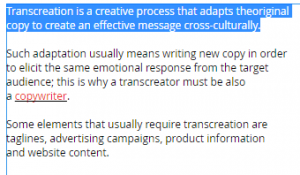





Thanks, this explanation of headings and SEO is clear and easy to understand.
You are very welcome!